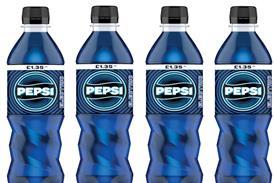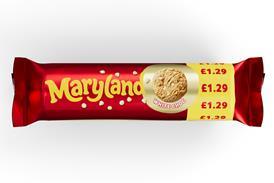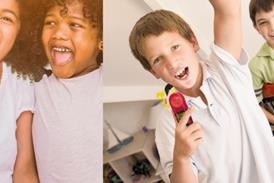7-Eleven’s Jack Wilkie reveals the c-store chain’s strategy in the US and its ambitions worldwide.
Once a familiar sight on high streets in London and the south east, the 7-Eleven brand actually has its roots in Dallas. Now one of the largest c-store operations in the world, it’s on a mission to expand across the globe.
The company already has more than 29,000 c-stores worldwide, operated either directly by the company or under franchise or licence. Of the 5,300 stores in the US, 3,400 are run by franchisees and the remainder company operated, with 470 managed by licensees.
A big part of 7-Eleven’s strategy is based on the retailers who use their initiative, says Jack Wilkie, 7-Eleven’s vice-president for corporate communications. “We empower the store operator to make their own ordering decisions, to make sure products meet the demographics of the area,” he says. “We don’t have people operating lots of stores; we want a single operator fully engaged in the business with no more than three stores.”
But 7-Eleven’s corporate stores are currently outperforming the franchised sites. “We think this is because the corporate store managers have fully embraced the retailer initiative strategy,” says Wilkie.
To become a 7-Eleven franchisee costs about $130,000, and the agreement works on a 50:50 gross profit split. “What they make depends on how well they control the inventory, shrinkage, and how much they keep it in the family,” says Wilkie. “A lot of the risk is on our part; we issue all electronic invoices and pay cheques. Our philosophy is co-prosperity for all - every member should share in our success.”
Right now fresh food is proving a key driver for stores all over the world. In Japan, for example, stores get deliveries of fresh foods up to three times a day. “Convenience stores and fresh food used to be an oxymoron but it’s a big push for us in the US,” says Wilkie.
Technology is at the core of 7-Eleven’s plans, and managers use a mobile ordering system to boost efficiency.
“Operators take control - they know what’s been sold and can project sales - they can answer all the questions like is there an event on? Are people going to be buying more beer today?” says Wilkie. “When we use the technology properly we can increase turnover by 20%.”
The company also works with suppliers to develop its own product ranges. Big Gulp fountain drinks, Big Bite grill products and Slurpee beverage, for example, have been developed exclusively for the chain. “Products you see at NACS are too late for us,” says Wilkie. “In Japan, 50% of the products are exclusive. No one else is doing this in the US so it’s our differentiation.”
The strategy is working. The company has had 37 consecutive quarters of sales growth in the US. And expansion continues to be top of mind: “We want the US to be the best in class,” says Wilkie. “We’re getting aggressive in the Chinese market and will have 200 to 300 stores in Beijing by the time the Olympics gets there. We’re looking at Brazil and Spain, and if we get into Spain and South America, the UK won’t be far behind.”
Company history
7-Eleven Inc - originally named The Southland Corporation until 1999 - reputedly pioneered the c-store concept in the US during its first few years of operation as an ice company when its retail outlets began selling milk, bread and eggs as a convenience to customers in Dallas in 1927.
The name 7-Eleven originated in 1946 when the stores were open from 7am to 11pm. Joe Thompson came up with the concept of giving customers what they want, when and where they want it, explains 7-Eleven vice-president for corporate communications Jack Wilkie. “Joe Thompson talked to his customers and asked what they would like it to carry,” says Wilkie.
The company started franchising in 1963 when it purchased Speedee Mart in California, and a 7-Eleven store in Las Vegas was the first 24-hour c-store in the US.
Once a familiar sight on high streets in London and the south east, the 7-Eleven brand actually has its roots in Dallas. Now one of the largest c-store operations in the world, it’s on a mission to expand across the globe.
The company already has more than 29,000 c-stores worldwide, operated either directly by the company or under franchise or licence. Of the 5,300 stores in the US, 3,400 are run by franchisees and the remainder company operated, with 470 managed by licensees.
A big part of 7-Eleven’s strategy is based on the retailers who use their initiative, says Jack Wilkie, 7-Eleven’s vice-president for corporate communications. “We empower the store operator to make their own ordering decisions, to make sure products meet the demographics of the area,” he says. “We don’t have people operating lots of stores; we want a single operator fully engaged in the business with no more than three stores.”
But 7-Eleven’s corporate stores are currently outperforming the franchised sites. “We think this is because the corporate store managers have fully embraced the retailer initiative strategy,” says Wilkie.
To become a 7-Eleven franchisee costs about $130,000, and the agreement works on a 50:50 gross profit split. “What they make depends on how well they control the inventory, shrinkage, and how much they keep it in the family,” says Wilkie. “A lot of the risk is on our part; we issue all electronic invoices and pay cheques. Our philosophy is co-prosperity for all - every member should share in our success.”
Right now fresh food is proving a key driver for stores all over the world. In Japan, for example, stores get deliveries of fresh foods up to three times a day. “Convenience stores and fresh food used to be an oxymoron but it’s a big push for us in the US,” says Wilkie.
Technology is at the core of 7-Eleven’s plans, and managers use a mobile ordering system to boost efficiency.
“Operators take control - they know what’s been sold and can project sales - they can answer all the questions like is there an event on? Are people going to be buying more beer today?” says Wilkie. “When we use the technology properly we can increase turnover by 20%.”
The company also works with suppliers to develop its own product ranges. Big Gulp fountain drinks, Big Bite grill products and Slurpee beverage, for example, have been developed exclusively for the chain. “Products you see at NACS are too late for us,” says Wilkie. “In Japan, 50% of the products are exclusive. No one else is doing this in the US so it’s our differentiation.”
The strategy is working. The company has had 37 consecutive quarters of sales growth in the US. And expansion continues to be top of mind: “We want the US to be the best in class,” says Wilkie. “We’re getting aggressive in the Chinese market and will have 200 to 300 stores in Beijing by the time the Olympics gets there. We’re looking at Brazil and Spain, and if we get into Spain and South America, the UK won’t be far behind.”
Company history
7-Eleven Inc - originally named The Southland Corporation until 1999 - reputedly pioneered the c-store concept in the US during its first few years of operation as an ice company when its retail outlets began selling milk, bread and eggs as a convenience to customers in Dallas in 1927.
The name 7-Eleven originated in 1946 when the stores were open from 7am to 11pm. Joe Thompson came up with the concept of giving customers what they want, when and where they want it, explains 7-Eleven vice-president for corporate communications Jack Wilkie. “Joe Thompson talked to his customers and asked what they would like it to carry,” says Wilkie.
The company started franchising in 1963 when it purchased Speedee Mart in California, and a 7-Eleven store in Las Vegas was the first 24-hour c-store in the US.





















No comments yet